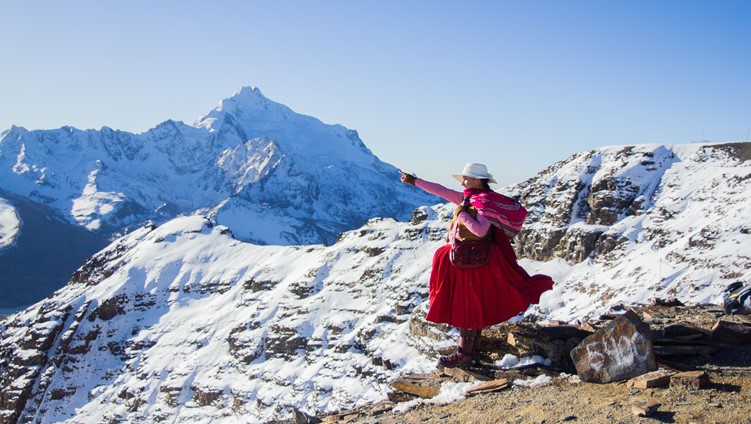Abdullah (not his real name) left Sudan in 2015, in search of a better life in Europe. Five difficult years later he met Hannah Parry, and the two became friends. Here, through Abdullah's own words, Hannah and Abdullah tell his story.
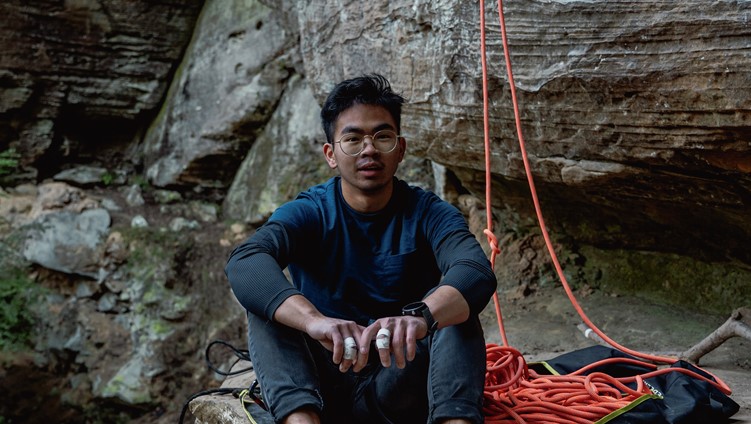
Abdullah (not his real name) left Sudan in 2015, in search of a better life in Europe. Five difficult years later he met Hannah Parry, and the two became friends. Here, through Abdullah's own words, Hannah and Abdullah tell his story.
I met Abdullah in the spring of 2020. The pandemic was raging around us when our paths crossed in Calais, France. My journey from England had been stressful. As a volunteer aid worker I was permitted to travel, but the restrictions were extremely strict. French authorities could turn me away at the border, as they had other volunteers, and I was putting myself at risk of the virus. But my journey was nothing compared to Abdullah’s.
“I left Sudan in 2015 and I don’t think I will ever go back,” says Abdullah during our weekly video call. We don’t usually talk about the past when we catch up, but I had asked ahead of time whether he minded answering some questions about his story.
“We lived in the camp from when I was five years old,” he says: “me, my mum, my two brothers and three sisters. I lost my dad so we had no choice but to live in the camp. I didn’t know anything else, but I knew I wasn’t happy. There was no good food, no good peace. Everything is so bad there.”
Abdullah’s English is really good, and I wonder whether he had any formal classes. “Yes, there was a school there,” he tells me. “Organisations tried to teach things, people from UNICEF or the UN, but I was so unhappy, I couldn’t learn well. I just learnt the beginnings of English. When I came to Libya I found people from different African countries that spoke English and learnt more.”
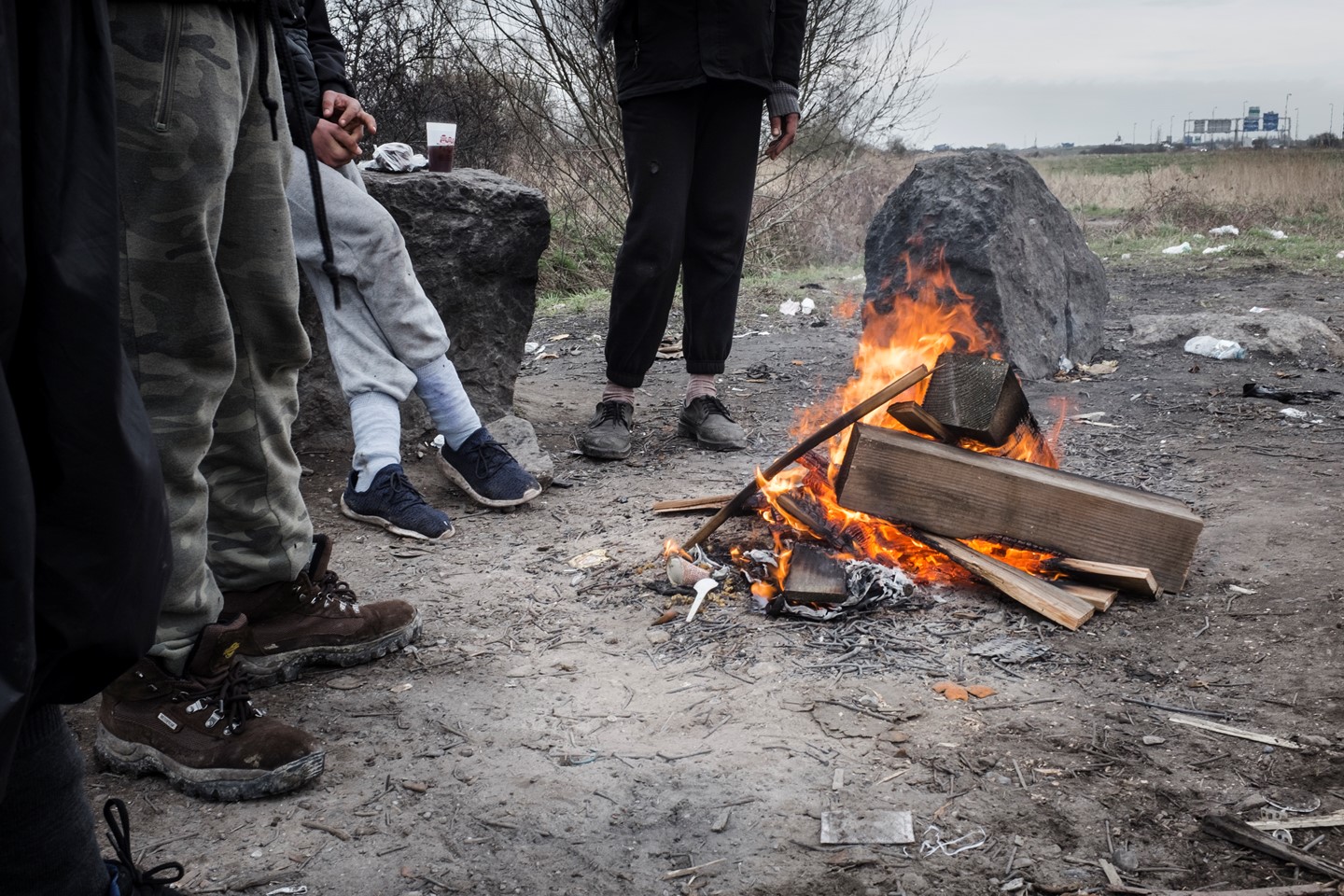
Photo courtesy of Stephen F. Evans
Abdullah was fifteen when he left his family to search for a better life. I can imagine his tall, thin frame walking away from his family as he began a journey which would span five years and thousands of miles. “I had a small bag with all my things inside,” he tells me, holding out his hands to show how small. “And my mother, she had a gold ring from her marriage. She sold this and gave me the money so that I could leave. I left because it’s so crazy there, I couldn’t build my future, it's not safe. Sometimes there are fights, gun shots. I lost my father before, so I had to go to find a future.”
It was Ramadan when we first met. It was a pleasure to be invited to Iftar, the evening meal that ends the daily fast, in the tent Abdullah shared with a couple of friends. We ate a bean dish with bread, all of it handmade on the fire. I didn’t know much about Sudan before meeting Abdullah, but our time together in France taught me about the food he likes to cook, as well as some Arabic words. His bright, white teeth would flash, contrasting with his dark skin, when he laughed at my awful pronunciation, and even more at my attempted writing. “Nah, man, you’re doing fine!” he would reassure me, chuckling.
We would meet at the beach most days and chat about what had been happening. One day, in late May, the unpredictable coastal weather suddenly turned wintery once again, but he arrived at the blustery seafront without a coat. “The police took it - they did a clearance today,” he told me. The Compagnies Républicaines de Sécurité (CRS) - the police unit responsible for monitoring the refugees in northern France - regularly cleared the tents from areas of wasteland where people from Sudan, Afghanistan, Iran, Iraq, Pakistan, Ethiopia and elsewhere were staying. Their aim was to prevent another ‘Jungle’: until 2016 a village of tents, tarpaulins, and shacks were home to people on the move (an umbrella term for refugees, migrants and asylum seekers). During this latest clearance Abdullah lost his tent, sleeping bag and spare clothes, but he wasn’t nearly as upset about it as I was. “It’s fine, it’s not too cold and I’m used to it,” he said.
'During this latest clearance Abdullah lost his tent, sleeping bag and spare clothes, but he wasn’t nearly as upset about it as I was. "It’s fine, it’s not too cold and I’m used to it,” he said.'
We shared a cigarette and he told me about winter in Italy. “When I was on the way, I just slept anywhere! I remember it was so cold and I was on the beach. I had a little blanket that I was carrying, but nothing else. I was walking to keep warm when a man told me where I could go for food. He couldn’t really talk any English and I couldn’t really talk any Italian, but I found the place, and that’s when I met Mr. Bob!”
This was in Ventimiglia, a town near the French-Italian border. Bob was a volunteer who helped organise distributions of hot food each evening in the town square. Blessed with an amazing memory for names, an infectious laugh and an ability to see the light in the darkest situations, he is everyone’s friend. Seemingly never without a cigarette in his mouth, he looks older than his 43 years.
During the pandemic, Bob wasn’t permitted to travel the few kilometres over the border from France into Italy, but was allowed to drive for three days to Calais. When I met him he told me he felt compelled to help. “I couldn't just sit on my arse, could I?!” He had spent a couple of months sleeping in his van and working at the warehouse and on distributions. “I’d heard how bad it was,” he said: “no volunteers here, police restrictions making everything near impossible. I had to do what I could.”
Originally from the UK, Bob’s hybrid accent betrayed many years in France. “I thought I was going to die here in Calais,” he confessed. He assumed he would contract COVID-19. Social distancing is impossible in a crowded tent encampment, and our work put us at risk despite the masks, gloves and cleaning regimes the organisation we worked with - Care4Calais - adhered to.
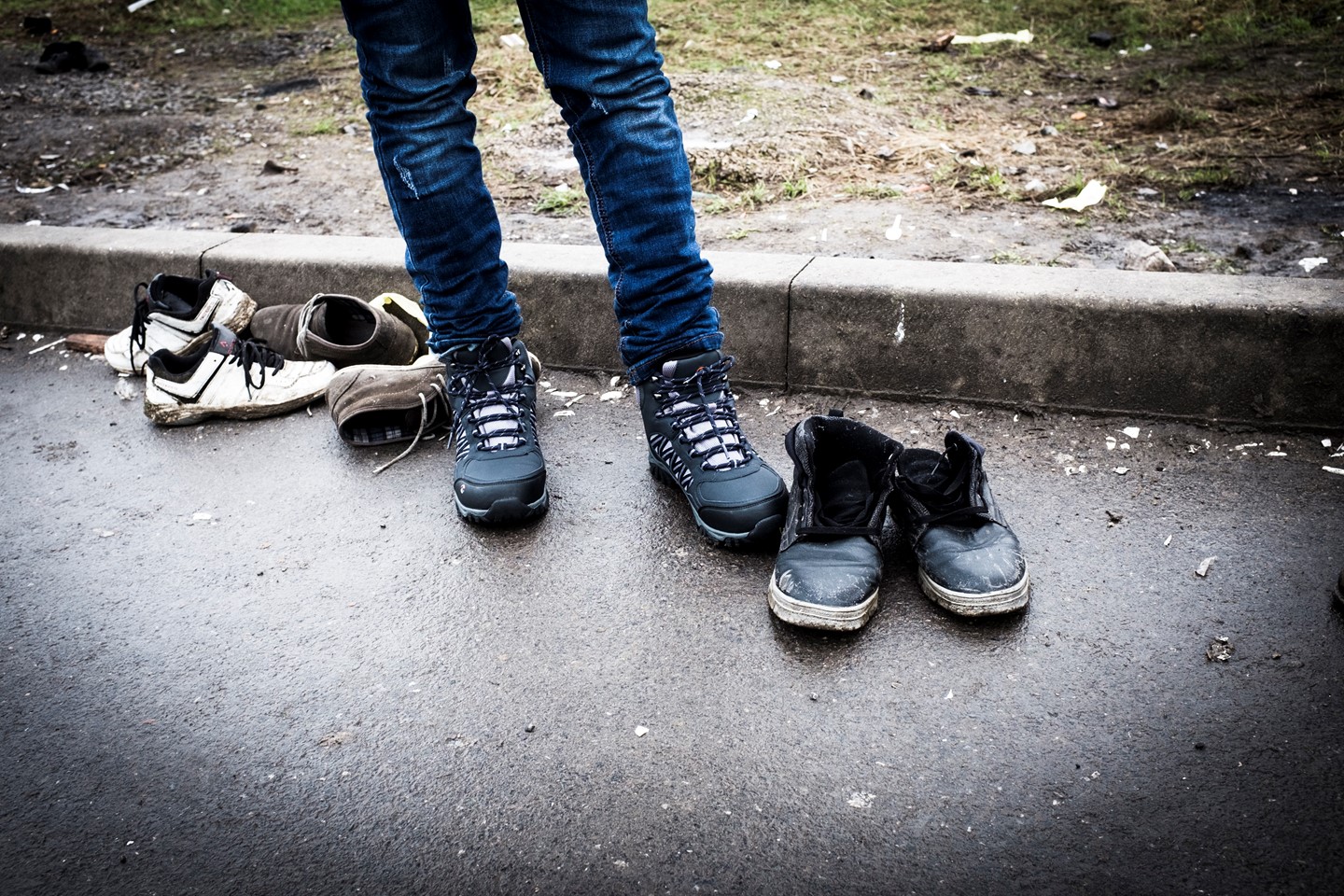
Photo courtesy of Stephen F. Evans
Abdullah had been a refugee for a year and a half by the time he met Bob. Like nearly 16,000 other Sudanese people he had fled the after effects of the civil war. The north-south divide and the political situation since colonial rule ended in the 1950s are complex, but resulted in almost continuous conflict. Whilst the war supposedly ended in 2005, militias formed in response to government violence continue to cause unrest.
“I was in Libya for about a year,” Abdullah recalls. “I met other Sudanese people and I worked with them in a bakery. There are so many problems there. A lot of the Libyan people don’t like the Sudanese people. When they see you on the way, they fight you, they take your money. I had never thought about Europe before, but I saw other people crossing the Mediterranean Sea and I thought to go with them.”
”The journey on the sea, it was crazy,” he says. “We tried the first time. The boat started going down. Ten or more people got out of the boat to try and make it float - or they fell out of the boat, I’m not even sure. We couldn’t get them back in. There were so many people in that boat - like 110 people, something like that. The Libyan people - the smugglers - used another boat to pull us back to Libya. They fixed the broken boat and then two days, three days later we tried again. There were less people that time but not that many less. Maybe twenty people less. We were on the sea for ten hours or something, and then we found big ships. They took us.”
Then, as now, organisations like SOS Mediterranee try to prevent people drowning during the 290-mile crossing from the African continent to Italian soil. In July 2021, their boat Ocean Viking rescued nearly 200 people in one day from several inflatable and wooden boats. And these are the lucky ones. It is estimated that at least 1,146 people have died in the first half of 2021.
“I was still with a couple of guys I knew from Libya.” Abdullah continues, coffee mug in hand. “But I don’t know where they are now.”
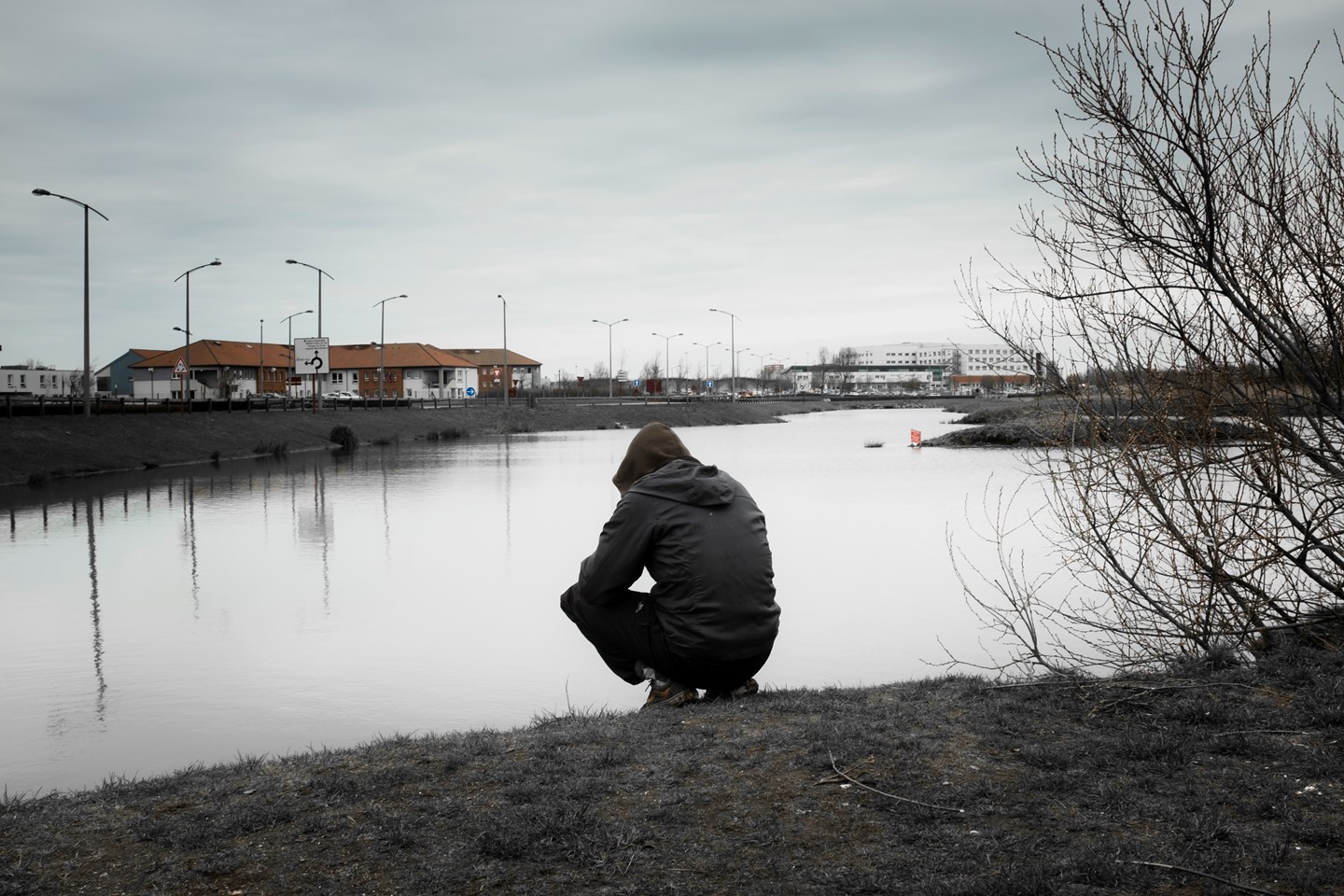
Photo courtesy of Stephen F. Evans
Abdullah had heard stories about different European countries. “I didn’t know much about Europe, but arriving in Italy, I felt safe. Libya was so hard a place to live, and I just knew it was going to be better.” But he didn’t know what to do or where to go. “I heard these other guys talking about France and about the UK, and I just followed them,” he says with a shrug.
After meeting Bob and crossing into France, he went to Paris, travelling mostly by foot. “I guess I could have tried to get on a train or something”, he says, “but one time I was just sleeping in a station and the police made me leave, so I avoided that again. I didn’t know if they would arrest me, but I didn’t want to wait to find out!”
“When I got to Paris and saw how people were living, I thought, ‘Why did I leave?’ At least it isn’t always raining in Sudan!” Abdullah laughs, but we both know how awful Paris is for people on the move. Tents are crammed under road bridges, police clearances are frequent and food and shelter are stretched too thin to help everyone, causing tensions.
“I met some people - really nice people,” Abdullah continues. “They were working for some organisation giving out hot food for the guys. I started helping them. They were French people but they spoke English and I could help the guys who could only speak Arabic.”
'“I guess I could have tried to get on a train or something”, he says, “but one time I was just sleeping in a station and the police made me leave, so I avoided that again. I didn’t know if they would arrest me, but I didn’t want to wait to find out!”'
This is how I met Abdullah, too. After spending several months in Paris, he had decided to try to reach the UK. He walked to Calais, where the sea crossing to England is shortest, and was soon helping people again. Abdullah assisted with more than just translation when the organisation I volunteered with took food, clothes and equipment for distributions. There are hundreds of people in Calais, and we had to be organised to ensure fairness and to socially distance - all with limited resources. We realised that it was cheaper and quicker for us to provide rice, beans, onions, flour, cans of tomato and oil for groups to cook together. Abdullah and two other volunteers went up and down the queue, shouting and joking and directing, and managed to convince everybody to make groups of four friends and line up two metres apart. He did it all with the brightest smile, so that nobody complained about being bossed around.
“Calais was so hard though, man,” he says, after a shared reminiscence about the delicious cake our German friend Stephanie would make and bring to the beach. “I was there for more than a year and a half. I remember because it was two winters. Calais gets so cold! I would try and get on the trucks to get to the UK. I tried all the time. Every night I would go, but in the winter the metal doors are so cold you can’t even touch them.”
I remember saying goodbye to Abdullah in France. There were four of us sitting in my car, out of the wind, eating cake. Abdullah and I were sitting in the front and Stephanie in the back with Maz - a teenager from Sudan with dreams of being a football star. Stephanie and I were going to Serbia to help people on the move there. Abdullah and I joked about meeting up in London, and I was so hopeful we would. As we said goodbye, Abdullah hugged me. “I’m going to miss you, man.”
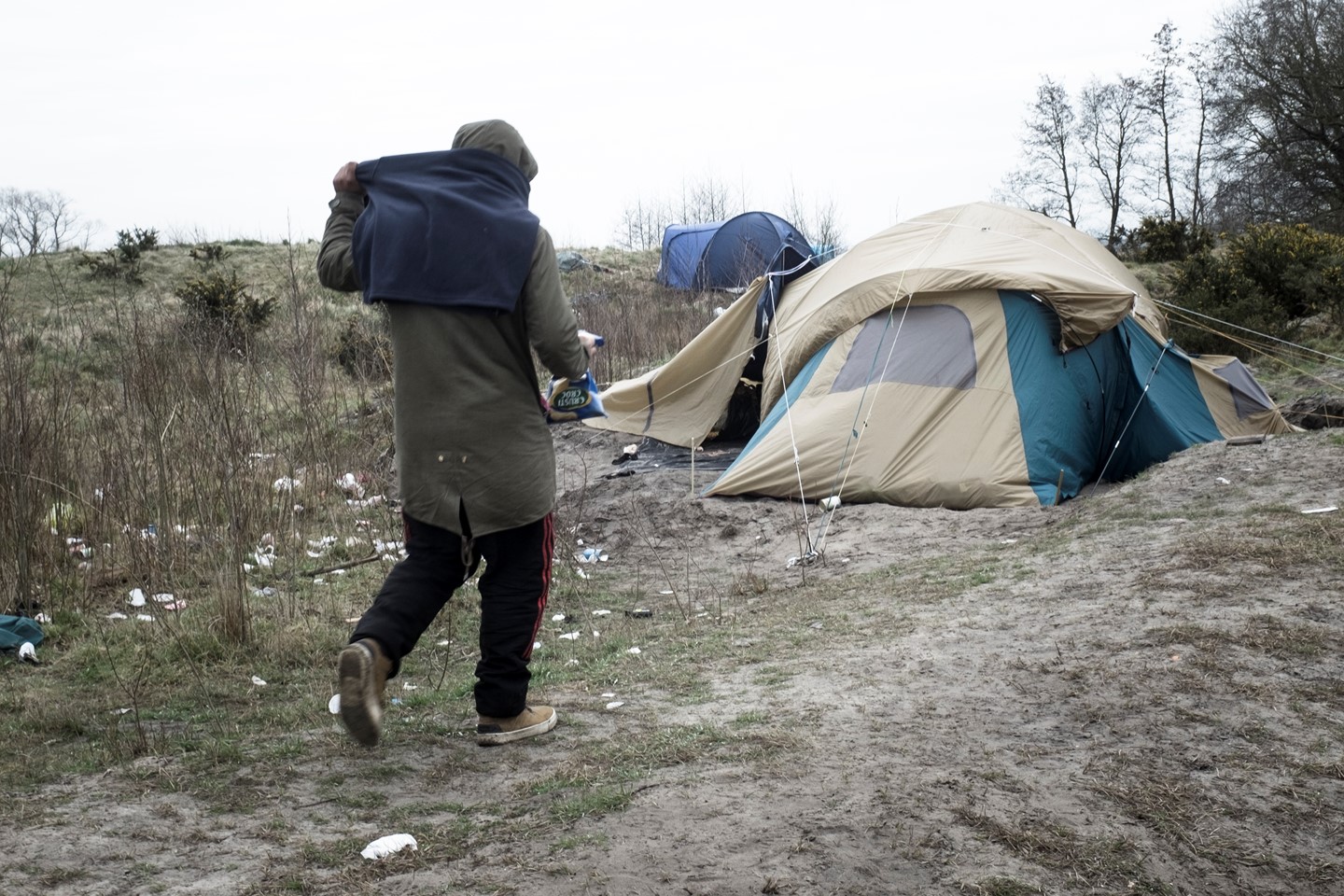
Photo courtesy of Stephen F. Evans
It was August 2020 when I got a call from an unknown British number. “Hello Hannah, how are you?” Abdullah always greeted me formally, as you do in Arabic. “It’s me, I made it.”
Abdullah drinks the last of his coffee before telling me about how he had made it: a subject neither of us had spoken about before.
“I made it to the UK with a truck. It was night time and me and my friend, we found a truck in Calais. We got inside, behind the boxes of I don’t even know what. We just stayed there, and then at six in the morning it started moving. I could hear people talking, dogs barking [probably the port security], but they didn’t find us, me and my friend. The truck went into the ferry. It was so hot in there, but we stayed quiet. When we got to England the truck stopped somewhere. We banged on the inside and the driver opened it and we ran outside. The driver, when he saw us, ran behind us and called the police. It was a village somewhere near London, but I don’t know where. The police searched the area and caught us. They took us to police custody for around 24 hours.”
I knew the rest of the story. When I got back from Serbia we could finally meet in London as we had hoped. He was temporarily housed in a hotel in central London. I was waiting at the end of the road when I saw his tall, thin frame approaching. “Hi, Hannah,” he said with a beaming smile, before giving me a hug. He was finally safe, after so many years of walking and surviving. He was ready to start his future.
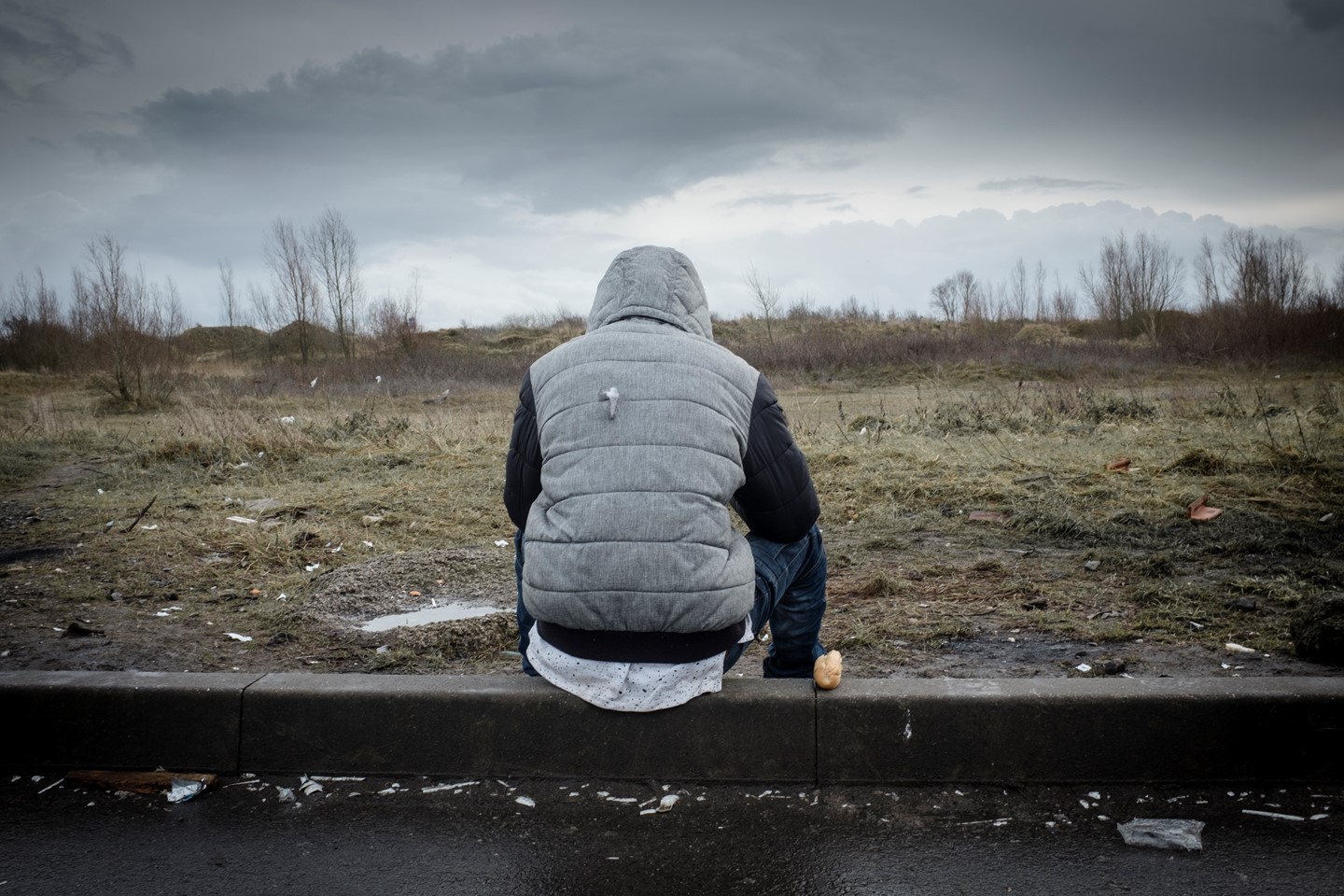
Photo courtesy of Stephen F. Evans
The global pandemic has been blamed for many issues, including the processing of asylum claims in the UK. Abdullah has been waiting for over a year now. He spent nine months in temporary accommodation in Kent: a hotel where meals were provided. This was undoubtedly better than a tent in Calais, but hygiene restrictions meant limited human contact, and without even meals to cook, endless boredom and waiting.
Abdullah’s arrival felt anticlimactic. All his energy had been focused on reaching England, but the reality of the situation hit him hard. “I talk to my Mum on the phone sometimes,” he says “They have money problems, and they thought I’d be able to help by now.” But asylum seekers aren’t permitted to work while their claim is considered.
Eventually, Abdullah was transferred to a shared house with refugees from other countries. Bradford wasn’t where he had wanted to go: the northern city is far from his friends in London and Kent. But at least he now gets an allowance on a prepaid card to shop and cook for himself. And as soon as restrictions eased, Abdullah started helping another organisation. “City of Sanctuary hands out food and clothes and stuff,” he tells me. “I went there, but I didn’t need anything - I just talked to people there and I could help with translating. Some of the people hadn’t had a chance to start English lessons yet, and they could only speak Arabic.”
Abdullah hasn’t had any access to courses yet, either. The endless waiting is hard to explain and impossible to justify. “When I first got here, I wanted to study - maybe to fix cars or in construction, but it’s been so long. I just want to work in any job and get some money to help my family.”
